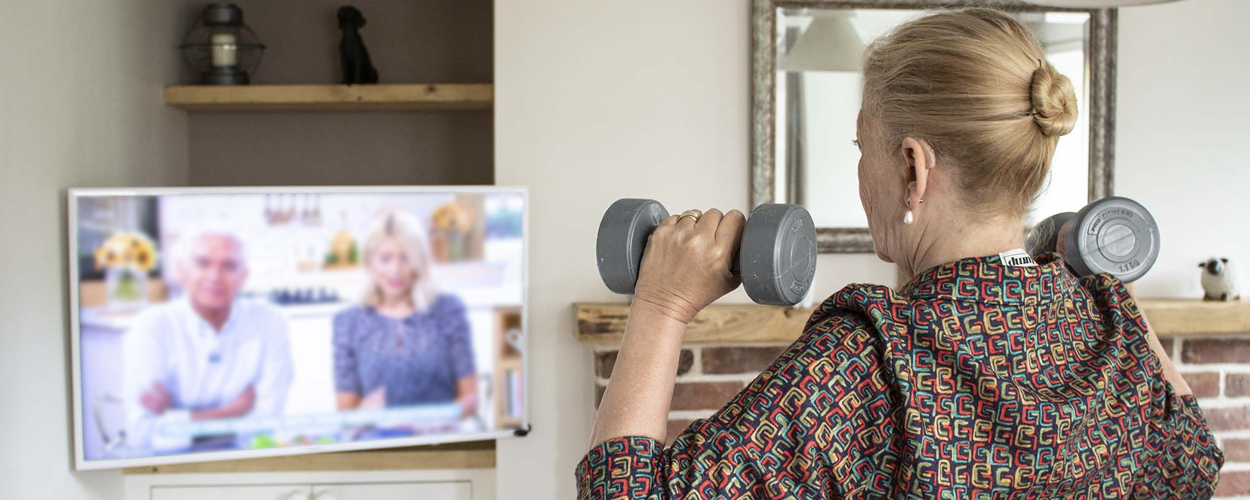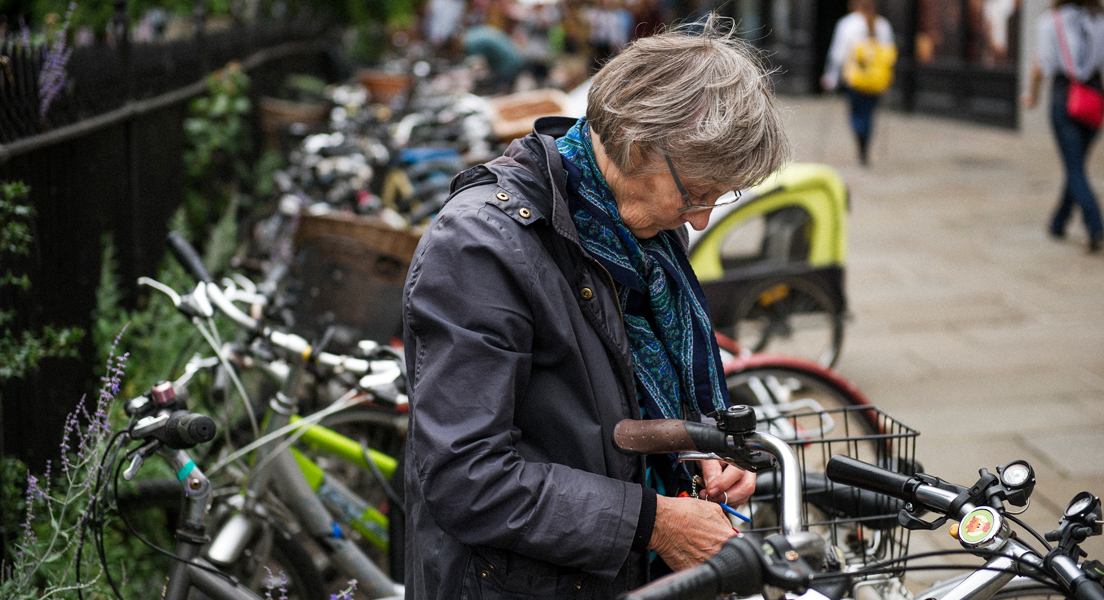Everybody knows that sports are good for your health. They assist in the efficient functioning of the heart, help to control cholesterol levels, and improve blood circulation. However, sports are also great for the mind. Playing sports and getting exercise triggers brain chemicals that make you feel happier and more relaxed. Team sports, in particular, provide a chance to relax and engage with others whilst participating in some healthy competition and reducing stress levels.
It is increasingly important to stay active in later life as it can help you stay healthy, full of energy, and even increase the chance of staying independent for longer. The NHS states that adults over 65 spend many hours a day sitting or lying down, which makes this age group the most sedentary. Evidence shows that people who are active have a lower risk of heart disease, stroke, some cancers, and dementia. As a result, it’s important to stay active in later life.
Sports are a great way to encourage your loved ones to stay active and healthy, as well as being a fantastic way to stay connected. Sports are social activities and something you can enjoy as a group. Today we’re going to look at five sports that are perfect for enjoying with your elderly loved ones.
Swimming
Swimming is an ideal workout for the elderly due to the low risk and low impact exercise involved. Many assisted living homes and community centres offer swimming classes to the elderly due to its many benefits, such as:
- Boosts mental health – Swimming can help reduce stress levels, boost mood, and increase brain function. Swimming is also a social sport that decreases the risk of feelings of isolation and loneliness.
- Increases muscle strength – A fantastic form of resistance training, swimming works every muscle group and helps to improve muscle strength.
- Reduces risk of osteoporosis – Swimming is not weight bearing, so this makes it easy on the joints for anyone who struggles with joint issues. It can also help improve bone mineral density which will decrease the risk of developing osteoporosis.
- Increases flexibility – Swimming can help increase flexibility in the legs, arms, hips, and neck. It can also assist in improving posture and alleviating back pain.
Walking
Walking may be using the word “sport” loosely, but exercise doesn’t need to be strenuous to be beneficial to your health. The NHS recommends that people aged 65 and over do at least 150 minutes of moderate aerobic activity weekly. Why not make this walking? Walking is a very social sport and is perfect to do with loved ones. Having someone to walk with makes it more fun, and helps to build and maintain relationships. Important things to remember before going walking are:
- Make sure your loved one has suitable footwear; the more comfortable the better.
- If your loved one has any foot problems, be sure to see a GP before taking up walking.
- Don’t let issues with walking stop your loved one from taking up the sport. Invest in something to assist in their mobility so they can still get out and about, even if only for a short while.
Cycling
It’s a misconception that you need to already have strong fitness levels before taking up cycling. It can be enjoyed by anyone at any age. Taking up cycling as a sport doesn’t have to be about speed or distance, you just need to have fun. This makes it the perfect sport to do with your elderly loved one.
Cycling is great for your mental health and helps battle the symptoms of depression, anxiety, and stress. It raises the levels of serotonin found in the body which help make you feel happier and more content. Cycling promotes a healthy lifestyle and is an activity that can be enjoyed outside, tackling feelings of loneliness and isolation. It’s never too late to start enjoying cycling with friends and family.
Golf
Golf is a sport played internationally and there are currently over 32,000 golf courses across the world. It has remained one of the world’s most popular sports for centuries and there’s no sign of this wavering. Golf offers a physical and mental challenge and can be played by people of all ages and abilities.
Golf is a considerably relaxed sport, but it can help to improve concentration. It requires accuracy, focus, and encourages creativity, as you must foresee where you would like the ball to go. Golf has a lower risk of injury compared to some other sports due to its slow pace. This makes it the perfect sport for the elderly.
The best part of golf is how social it can be. A single round has 18 holes to play, meaning plenty of time for chatting and some healthy competition between each shot.
Ten-Pin Bowling
Bowling is a sport that can be enjoyed by everyone and doesn’t take a lot of skill to get involved in. It can be enjoyed by the entire family, from young ages all the way up to grandparents. Again, this sport is extremely good for mental health due to the social aspect of it. The game can be enjoyed together non-competitively, or if your elderly loved one is particularly taken with the sport, you could even enroll them in a senior league or encourage them to start their own.
Bowling focuses on arm movement so may not be suitable for all elderly people. However, most bowling alleys have the option of having the sides up if the players aren’t feeling confident. If your elderly loved one struggles with arthritis or movement problems, ensure they have a lighter ball. Alternatively, they could use the ramp provided by most bowling alleys to assist in throwing the bowling ball.
Sports – Health Information
With anything new that involves physical activity, it’s important to consult a doctor first. Take the time to visit a medical professional with your loved one to make sure the sport you’ve chosen is suitable, or to ask for advice on a sport that may be more fitting.
The Careline Alarm
When your loved one isn’t out and about getting involved in their favourite sports, make sure they’re supported at home with a Careline alarm. And for peace of mind as they keep fit, consider our GPS alarm. To order your personal alarm today, get in touch with our helpful team on 0800 030 8777. Alternatively, you can complete our Contact Us Form via our website.
Editor’s Note: This article was updated on 7th June 2024 to reflect current information.
Choose Your Personal Alarm
To help you choose, start by selecting where you would use your personal alarm. In home only or at home and on the go.














Leave a Reply